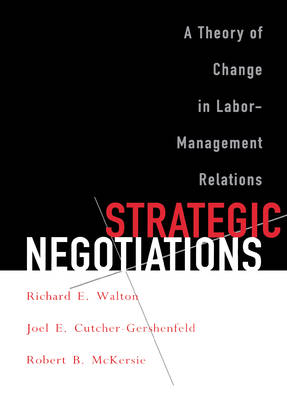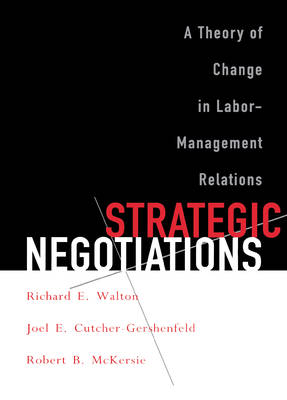
- Retrait gratuit dans votre magasin Club
- 7.000.000 titres dans notre catalogue
- Payer en toute sécurité
- Toujours un magasin près de chez vous
- Retrait gratuit dans votre magasin Club
- 7.000.000 titres dans notre catalogue
- Payer en toute sécurité
- Toujours un magasin près de chez vous
Strategic Negotiations
A Theory of Change in Labor-Management Relations
Richard E Walton, Joel E Cutcher-Gershenfeld, Robert B McKersieDescription
Strategic Negotiations makes a significant contribution to the literature on strategic choice (the explicit structuring by management and labor of business and bargaining strategies that use the economic and political environment as a framework to create bargaining power). The authors intentionally build upon previous work in A Behavioral Theory of Labor Negotiations, but this book also is a successful application of the three-tiered collective bargaining theory first developed in The Transformation of American Industrial Relations. Although scholars have identified strategic initiatives in the collective bargaining relationship, recent research has continued to emphasize economic explanations. This book provides an alternative framework of analysis.... [Strategic Negotiations] provides abundant evidence, both theoretical and empirical, that the traditional concerns of industrial relations researchers are still relevant.--Industrial and Labor Relations Review
Spécifications
Parties prenantes
- Auteur(s) :
- Editeur:
Contenu
- Nombre de pages :
- 408
- Langue:
- Anglais
- Collection :
Caractéristiques
- EAN:
- 9780801486975
- Date de parution :
- 15-10-00
- Format:
- Livre broché
- Format numérique:
- Trade paperback (VS)
- Dimensions :
- 152 mm x 231 mm
- Poids :
- 589 g







